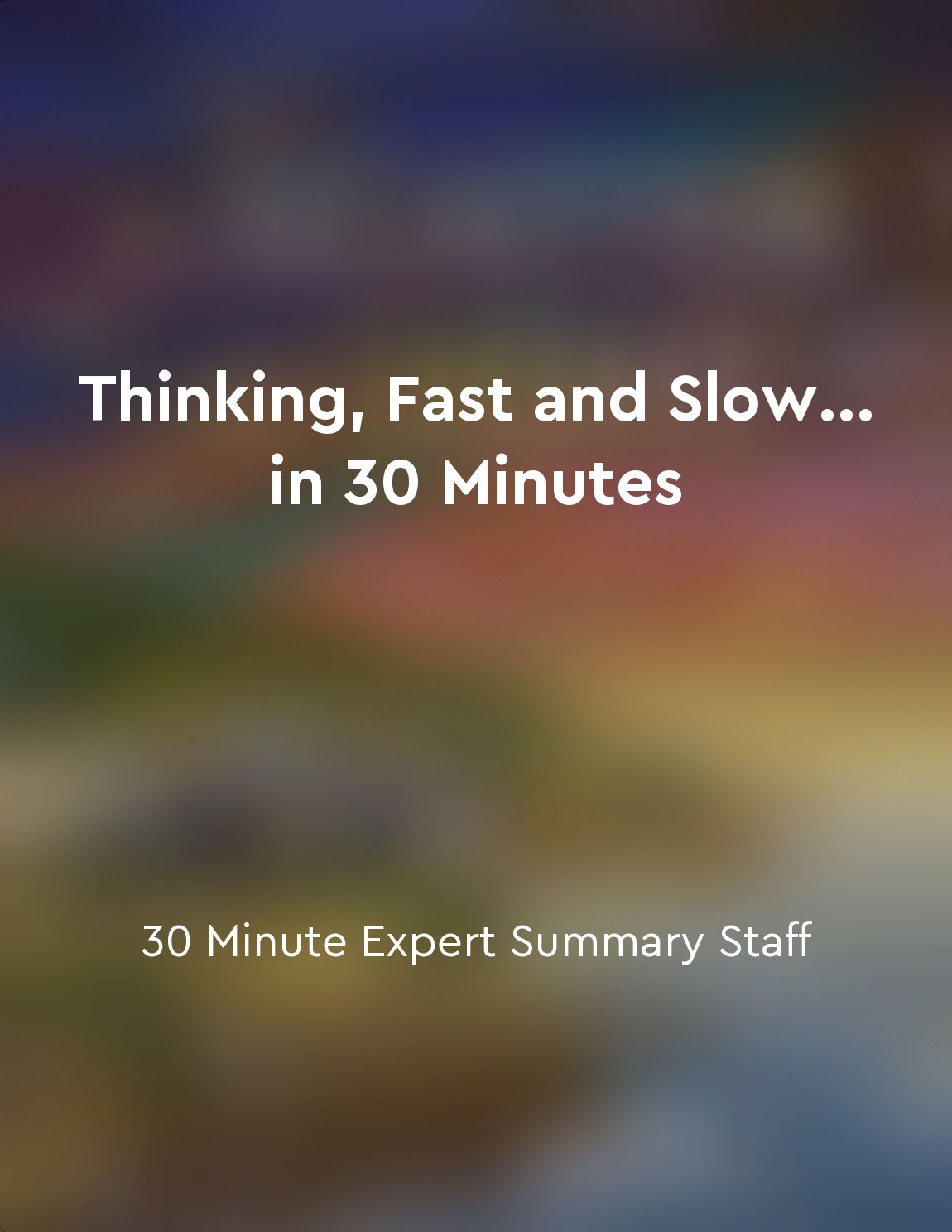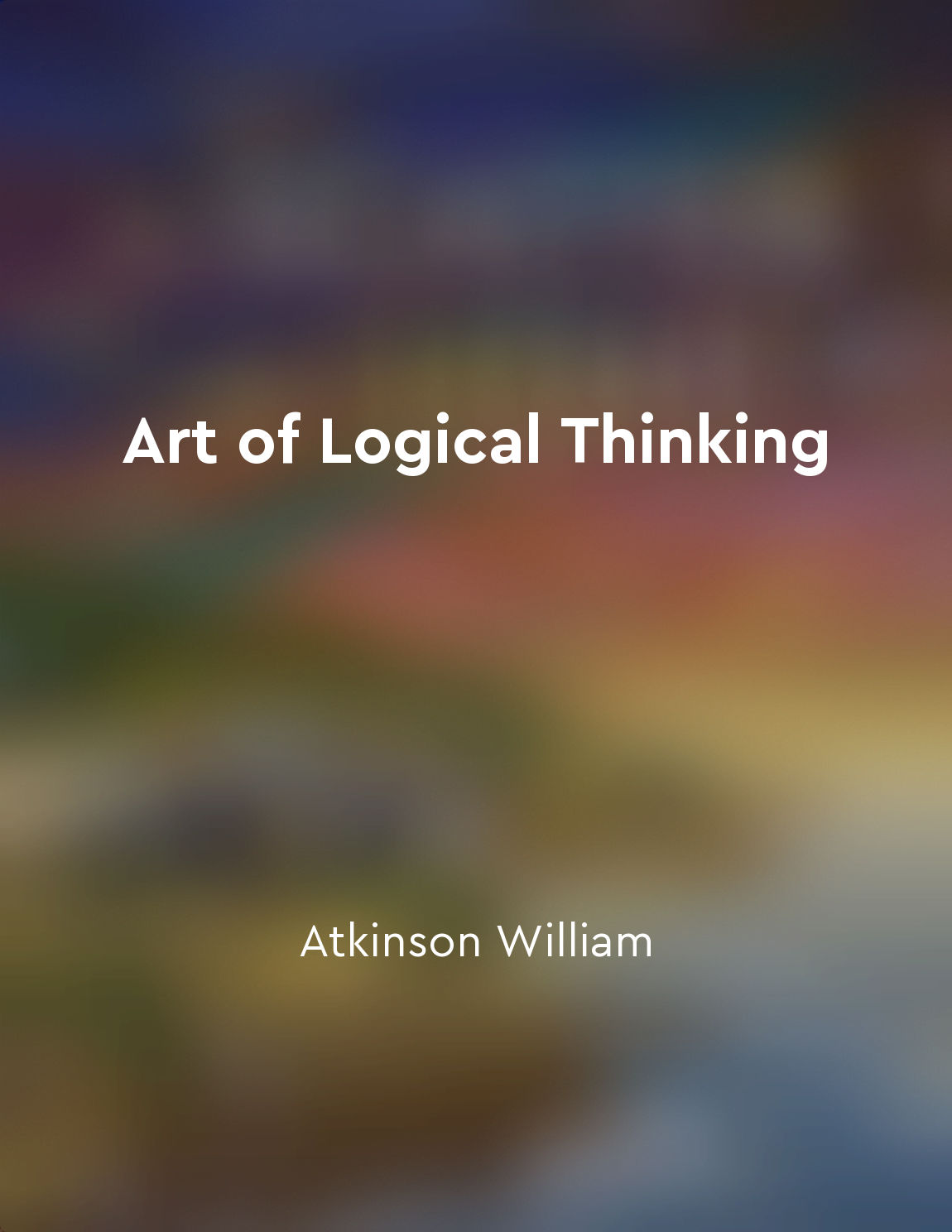Memory is not always reliable from "summary" of Your Brain Is Playing Tricks on You by Albert Moukheiber
Our memories are not as concrete as we might think. They are not like video recordings that we can play back with perfect accuracy. Instead, our memories are reconstructed every time we recall them, and this process leaves room for error. When we remember something, we are not accessing a perfectly preserved mental snapshot of the past. Instead, we are piecing together fragments of information stored in various parts of our brain. These fragments can be influenced by our emotions, beliefs, and other memories, leading to distortions. One common way our memories can be unreliable is through a phenomenon called confabulation. Confabulation is when our brains fill in gaps in our memories with false information that seems plausible. This can happen without us even realizing it, leading us to believe in false memories. Another factor that can affect the reliability of our memories is suggestion. When we are exposed to new information or suggestions, our memories can be altered to fit these new details. This is why eyewitness testimony, for example, can be so unreliable, as our memories can be easily influenced by leading questions or external cues. Furthermore, our memories can be influenced by our current beliefs and biases. When we recall a memory, we might unintentionally alter it to fit our current worldview. This can lead to the distortion of past events and the creation of false memories that align with our beliefs.- Our memories are not always as reliable as we might think. They are reconstructive and subject to distortion, influenced by our emotions, beliefs, and external suggestions. Understanding the fallibility of our memories can help us be more critical of our recollections and more cautious in relying on them as absolute truths.
Similar Posts
Mental imagery is a key to memory
In the world of memory competitions, mental imagery reigns supreme. This technique involves transforming information into vivid...
Sleep deprivation can impair our cognitive abilities
Sleep deprivation can impair our cognitive abilities, affecting our decision-making, problem-solving, and memory. When we are s...
Drugs affect brain function
The use of drugs can have a profound impact on brain function. When drugs are introduced into the body, they can alter the natu...
Space and time are subjective forms of perception
The understanding is in an especial manner subject to the law of the necessity of a synthesis of the manifold; in other words, ...

Integrating biology and neuroscience can deepen our understanding of the mind
The human mind has long been a source of fascination and mystery for scientists and philosophers alike. Through the ages, diffe...
Virtue is defined by principles of utility and social conventions
According to Hume, the concept of virtue is closely tied to the principles of utility and social conventions. Virtue is not an ...

Recognition heuristic simplifies judgments
The recognition heuristic simplifies judgments by relying on the principle that if one of two objects is recognized and the oth...

Subconscious influence
Subconscious influence is a powerful tool that can be used to manipulate others without them even realizing it. This form of ma...

Logical reasoning can be learned and practiced
The ability to reason logically is not an innate talent possessed by only a select few. It is a skill that can be acquired thro...
Time is a multiplicity of durations
Time is not a homogeneous medium. It is rather a collection of distinct durations that are constantly flowing. These durations ...


